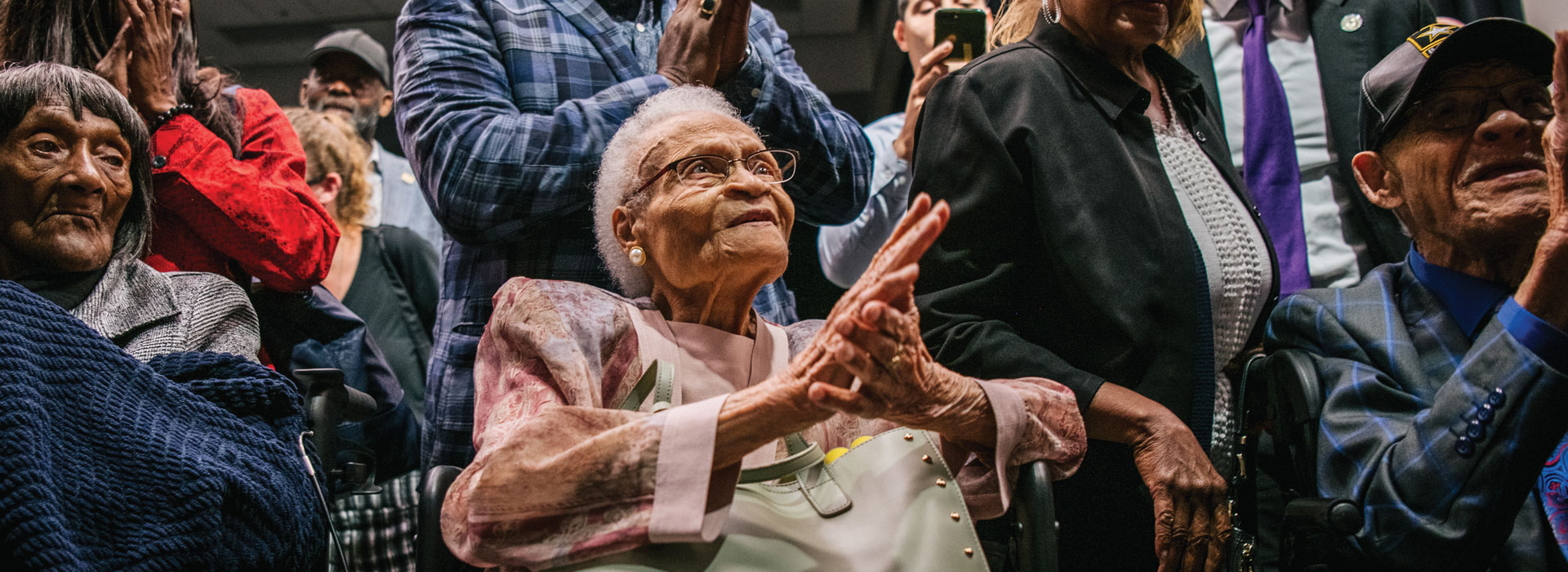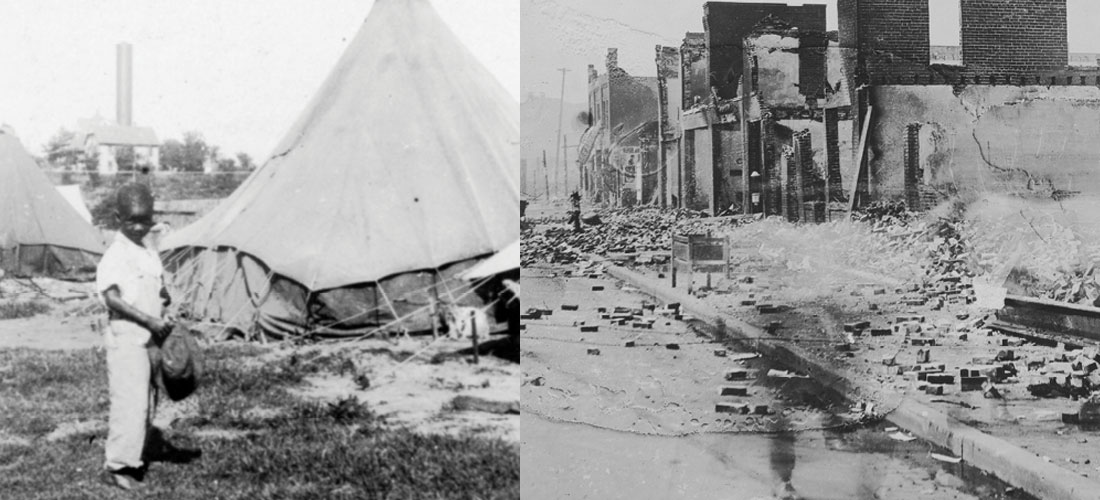Judge rejects Tulsa Race Massacre survivors’ reparations claim

From left, survivors Lessie Benningfield Randle, Viola Fletcher and Hughes Van Ellis attend a rally commemorating the 100th anniversary of the Tulsa Race Massacre. The three were plaintiffs in the suit. (Photo by Brandon Bell/Getty Images)
An Oklahoma state court judge has thrown out a lawsuit seeking reparations for the 1921 Tulsa Race Massacre, ending what could be the survivors’ best hope for justice for one of the worst racial terror attacks in U.S. history.
On Friday, Tulsa County District Court Judge Caroline Wall dismissed with prejudice a second amended petition, according to court records. In a brief order, the court found “further amendment futile” after it considered the parties’ arguments, and granted the defendants’ motions to dismiss.
An attorney for the survivors, Sara Solfanelli, told the Washington Post in a statement the plaintiffs intended to appeal.
“Black Americans, especially Black Tulsans, carry the weight of intergenerational racial trauma day in and day out—a weight they cannot relinquish or cavalierly dismiss,” Solfanelli said. “The dismissal of this case is just one more example of how America’s, including Tulsa’s, legacy is disproportionately and unjustly borne by the Black community.”
In September 2020, the only living witnesses to the massacre, including Viola Fletcher, Lessie Benningfield Randle, and Hughes Van Ellis, filed a public nuisance and unjust enrichment complaint against the city of Tulsa and other defendants. They sought reparations for an attack that decimated the thriving Black community in north Tulsa called Greenwood, also known as Black Wall Street.
 At left, a boy stands outside an American Red Cross tent erected for displaced Black residents following the massacre. At right, the ruins of the Greenwood District after the attacks. (Photos from the Tulsa Historical Society and Museum.)
At left, a boy stands outside an American Red Cross tent erected for displaced Black residents following the massacre. At right, the ruins of the Greenwood District after the attacks. (Photos from the Tulsa Historical Society and Museum.)In the summer of 1921, a white mob descended on Greenwood and razed more than 1,000 homes on 35 square blocks. By some estimates, at least 300 people were killed and about 9,000 people were left homeless.
The three survivors are all over 100 years old and their attorneys believed the complaint was their best chance for justice.
Attorneys for the remaining survivors pinned their hopes on a public nuisance claim under Oklahoma law to bypass the statute of limitations, which dashed previous bids for recompense.
Related article: Tulsa Reckoning: An ongoing lawsuit seeks justice for massacre victims
Last year, Wall denied in part a motion to dismiss filed by the defendants. But in August 2022, the judge rejected the survivors’ argument the attack created a continuing public nuisance after they said it was negatively impacting the Black community in North Tulsa to the present day.
The following month, the survivors filed an amended complaint seeking a ruling to rebuild the once-prosperous area. A fresh claim for unjust enrichment said the city had exploited “the historic reputation and legacy of the massacre and the ongoing nuisance to their benefit” without compensating survivors, including a $30 million Greenwood history center that generated revenue for the city.
Tulsa Regional Chamber’s attorney John Tucker argued in previous court filings that it is up to government officials, not the courts, to right the wrongs of the massacre and ultimately decide whether to grant reparations.
In her August 2022 order, Wall also rejected the idea of an “ongoing” public nuisance, and found the claims “present political questions and therefore dismissal is proper.”
“This court declines to engage in management of public policy matters that should be dealt with by the legislative and executive branches,” Wall wrote at the time.
Tulsa Mayor G.T. Bynum said in a statement to the media that while the city was aware of the ruling it had not seen the written order.
“The city remains committed to finding the graves of 1921 Tulsa Race Massacre victims, fostering economic investment in the Greenwood District, educating future generations about the worst event in our community’s history, and building a city where every person has an equal opportunity for a great life,” Bynum said.
But in a tweet, civil rights attorney Ben Crump called the ruling a “sad miscarriage of justice.”



